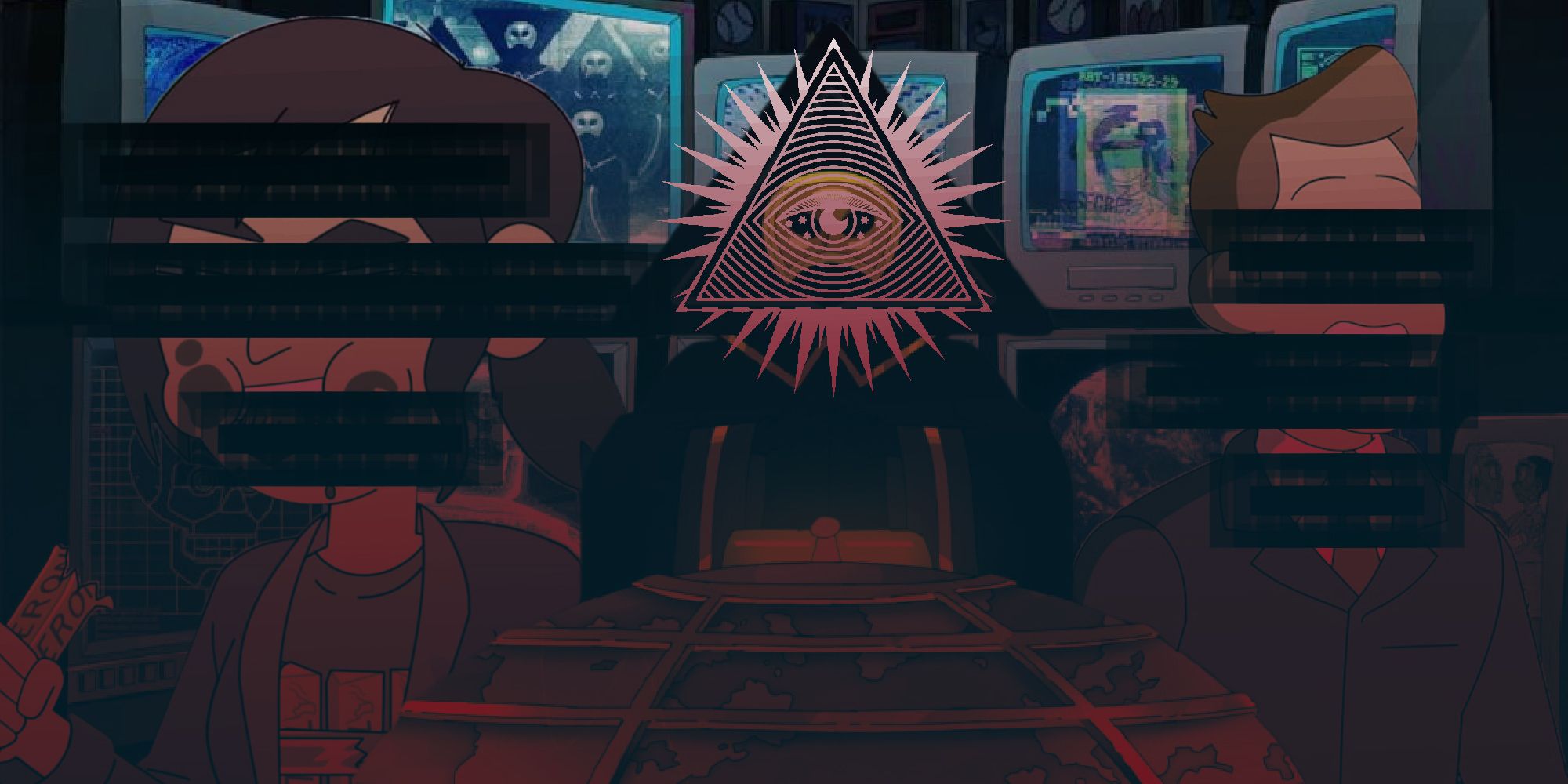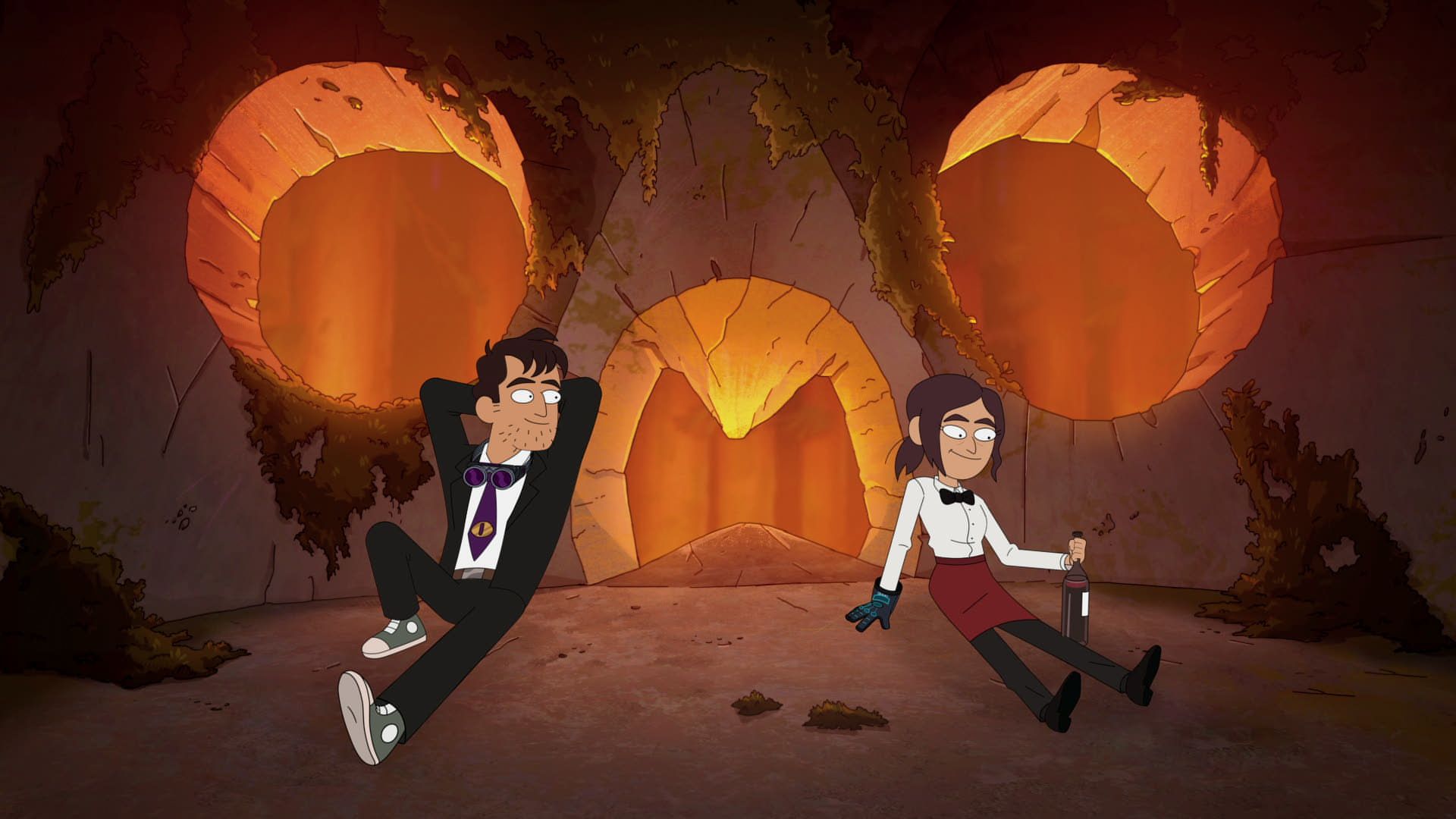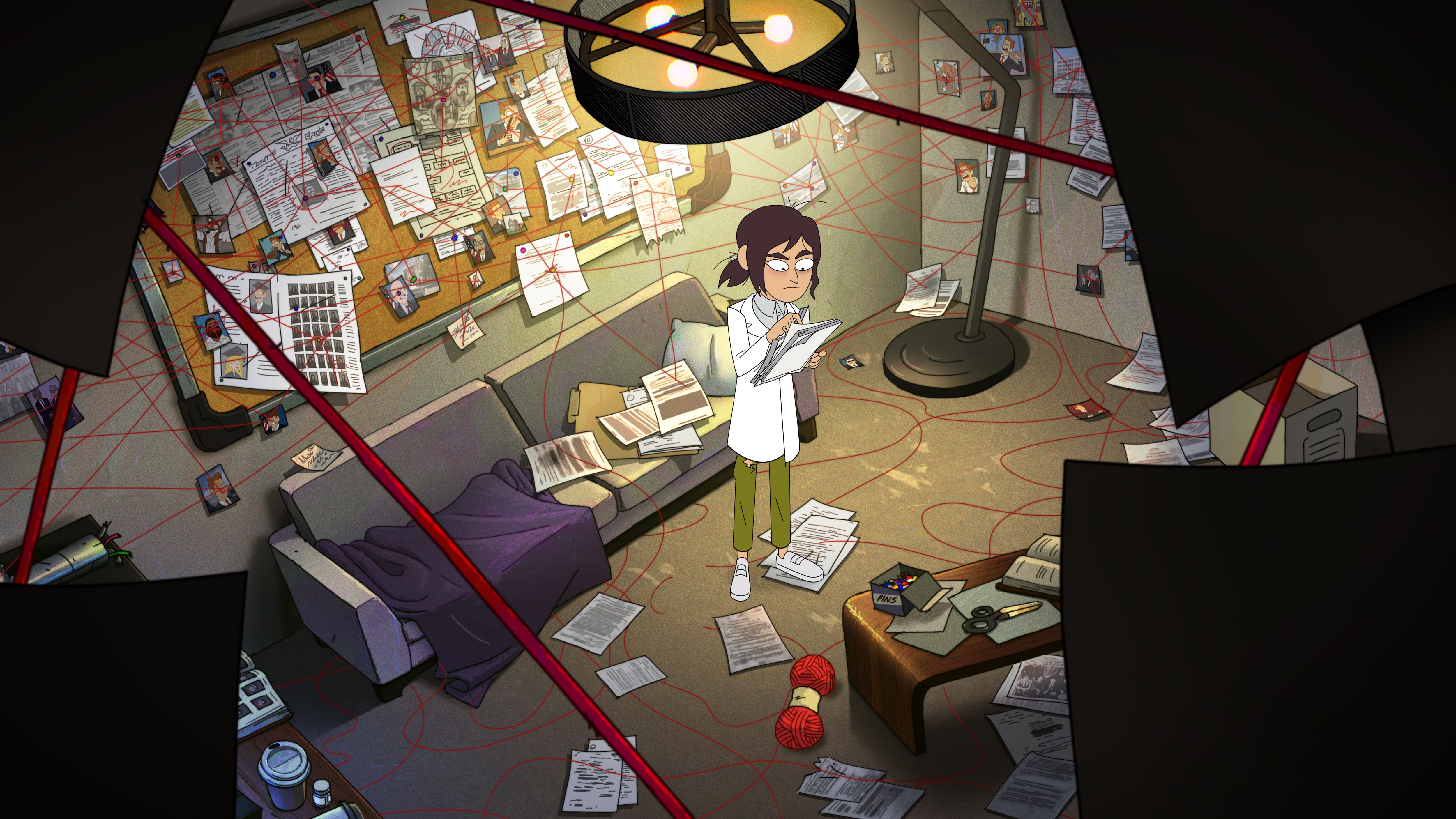Inside Job is fantastic, and I’m already kicking myself for not checking it out sooner. From the minds of showrunner Shion Takeuchi and executive producers Mike Hollingsworth and Alex Hirsch comes a bitingly satirical animated comedy that subverts so many of the tropes we’ve come to expect from cartoons aimed at adults. It doesn’t rely on cutaway gags or toxic nihilism to drive its characters and narrative home, but an outwardly positive glimpse at how society continues to dunk on itself for believing in the wildest things.
Even protagonist Reagan Ridley is a clever twist on the lonely and intelligent protagonist we’ve seen popularised by the likes of Archer, BoJack Horseman, and Rick & Morty. She might be a hardass, but is equal parts caring and in search of companionship, willing to address her personal shortcomings instead of piling these insecurities onto those who try so hard to make her a better person. I’m yet to finish the first season’s second act, but seeing her fall into a relationship and work on who she is in spite of familial trauma and a harsh upbringing is something to admire.
I’ll save a deeper dive into the show as a whole for another day, since right now I want to delve into the show’s sense of humour and how it takes absolutely no prisoners. Whether you’re on the left, right, or a libertarian jostling awkwardly in the centre, Inside Job is happy to take your sociopolitical views and roast them into oblivion. This is nothing new - adult animated comedies have been making cultural references for decades, and often this is where their most effective moments originate. The world and medium are constantly evolving, and writers will draw from their own experiences and the society they exist in.
Inside Job is different because its foundation is a political one. Reagan and her motley crew of supporting characters work for Cognito Inc., a corporation responsible for inventing all the conspiracy theories that continue to dominate online discourse and supposedly orchestrate our entire lives. It’s a silly, innovative concept built on the collective exhaustion we have all accrued as right-wing idiots turn overblown lies into legitimate ideas that propel fascists onto political platforms they don’t deserve. It’s a serious underlying satire, but one expressed through sharply written jokes that never miss their target.
The first few episodes alone go after flat earthers, Joe Rogan, Q-Anon, and so many other sad little dipshits. At the same time, leftist indifference and needless self-righteousness are poked fun at too, albeit to a lesser extreme because, let’s face it, they aren’t the big problem here worth addressing.
I imagine Takeuchi, Hirsch, and Hollingsworth have watched the Trump presidency rise to prominence and alt-right rhetoric become commonplace partially thanks to internet theories and toxic discourse being allowed to run rampant, forming together into thoughts that sadly evolved into votes for people who want to strip away rights from minorities and regress our society into a far less inclusive place. Look where we are now, and taking these people to task and labelling them as fools who need to be proven wrong in front of the entire world shouldn’t be a difficult thing to ruminate on. Facts don’t care about their feelings after all.
As a society we can often be too afraid to take a stand, or let these corners of the internet fester for so long that it becomes too late to do anything about them. We are at that point now, and only recently have figures like Alex Jones - the show addresses his Sandy Hook denials before spiking him with magic mushrooms to admit his love for Hilary Clinton - are only now getting their just desserts through high profile court cases. Conspiracy theories are something you can hear normal people spouting every single day because going against the perceived elite is apparently more important than making sense.
The pandemic isn’t a hoax, vaccines don’t give you autism, and 5G isn’t being used to pull us under government control. Inside Job gets the importance of lighting a fire under said asses, and knows that hurt feelings leading to the potential realisation that perhaps you need to think for yourself instead of believing what you see on the internet is worthwhile. You can view this as low-hanging fruit or lazy satire, but being blunt in its delivery is necessary in 2022, even more so when parody has become harder and harder to parse from the real thing. We need to point out how ludicrous it all is or take the risk of some viewing it in the wrong way. Be honest and spiteful if it results in a net positive, and who says an animated show like this can’t carry a message that matters.
Putting aside its critical commentary, Inside Job tells an empathetic and intelligent story about a woman learning to love herself in a world that constantly demeans her, a family who has raised her to never be enough, and a team who - despite their eccentricities - care about her wellbeing. It's an unusual dynamic, but when combined with such a tight, concise premise it works so damn well. Now to wait for the season’s final episode to break my heart somehow.



